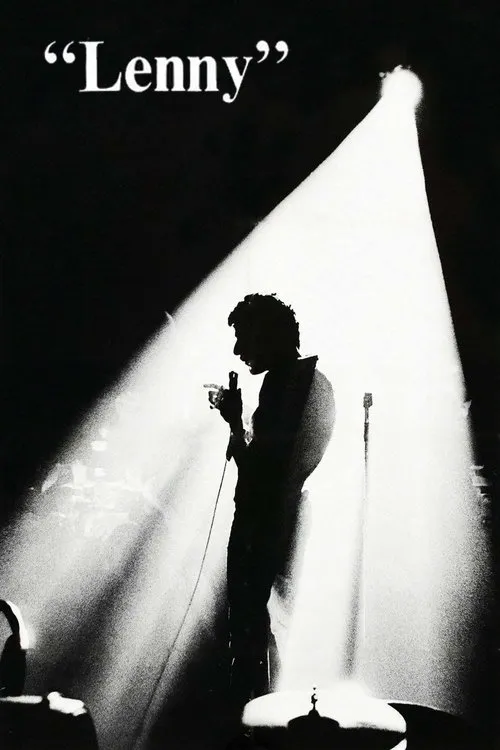Lenny

Plot
Lenny Bruce's life story is one of controversy, social commentary, and unrelenting passion. Born Leonard Alfred Schneider on October 13, 1925, in Brooklyn, New York, Lenny would become one of the most influential and polarizing comedians of the 20th century. This biographical drama, released in 1974 to widespread critical acclaim, brings Lenny's remarkable life into focus, capturing the complexities and raw emotion of a man who refused to be silenced by the societal norms of his time. The film begins with Lenny, played by Dustin Hoffman in a stunning performance, bursting onto the New York comedy scene in the late 1950s. He quickly gains a following for his biting, irreverent style, which tackles topics deemed taboo, from racism to sex to organized religion. Lenny's act is characterized by its unflinching honesty, and his refusal to sugarcoat the truth. This approach earns him both adoration from his fans and vitriol from those in positions of power. As Lenny's star rises, so does the opposition. He faces intense scrutiny from conservative groups and law enforcement, who seek to censor his material. The movie shows Lenny at a pivotal moment in the 1960s, when the nation is grappling with civil rights, the Vietnam War, and the counterculture movement. His comedy serves as a reflection of the time, and he becomes an unlikely voice for the emerging counterculture. The film highlights Lenny's complicated relationships, including his tumultuous marriage to Honey, played by Valerie Perrine in a beautiful performance. Lenny's struggles with addiction and personal demons are also on full display, revealing a complex figure often misunderstood by the public. Through these relationships, the film humanizes Lenny, revealing the person behind the persona. One of the most pivotal moments in Lenny's career was a 1964 performance at Goldstein's on Sunset Strip in Los Angeles. In a searing monologue, Lenny tackles topics such as the degradation of the American military, sexism, and the failure of the justice system. His commentary sparks outrage and cheers, cementing his status as a fearless social commentator. However, Lenny's antics soon catch the attention of the authorities. He is arrested on obscenity charges multiple times, with the film meticulously chronicling these events. The 1964 obscenity trial, for which Lenny is acquitted, serves as a turning point in his career. He becomes a hero to those fighting for free speech and an outcast to those seeking to silence him. Despite his triumphs, Lenny's personal struggles continue to plague him. He descends into addiction, and his relationships suffer. The movie shows Lenny's increasing frustration with the Establishment, and his determination to push the boundaries of free speech. In a series of raw, heart-wrenching scenes, Lenny faces his addiction, personal failures, and the harsh realities of his situation. Throughout the film, Hoffman delivers a tour-de-force performance, capturing Lenny's vulnerability, charisma, and unyielding passion. The movie's direction, handled by Bob Fosse, is equally impressive, using innovative visuals and a pulsating rhythm to convey the energy and emotion of Lenny's performances. Lenny's story is one of a tragic figure, destroyed by his own demons and the external forces he resisted. Despite his untimely death in 1966 at the age of 40, his legacy lives on, inspiring generations of comedians, activists, and artists. The movie, though a biopic, feels like a time capsule, capturing the fervor and intensity of the 1960s and the irreparable impact of Lenny's ideas on American culture. Ultimately, Lenny is more than a biographical drama – it's a scathing critique of a society that seeks to silence its most provocative voices. Through Lenny's story, the film warns against the dangers of censorship, while celebrating the importance of free speech in a democracy. As Lenny would say, "If you're going to talk the talk, you have to walk the walk." This movie walks the walk, and the result is a masterpiece of cinematic storytelling.
Reviews
Recommendations




